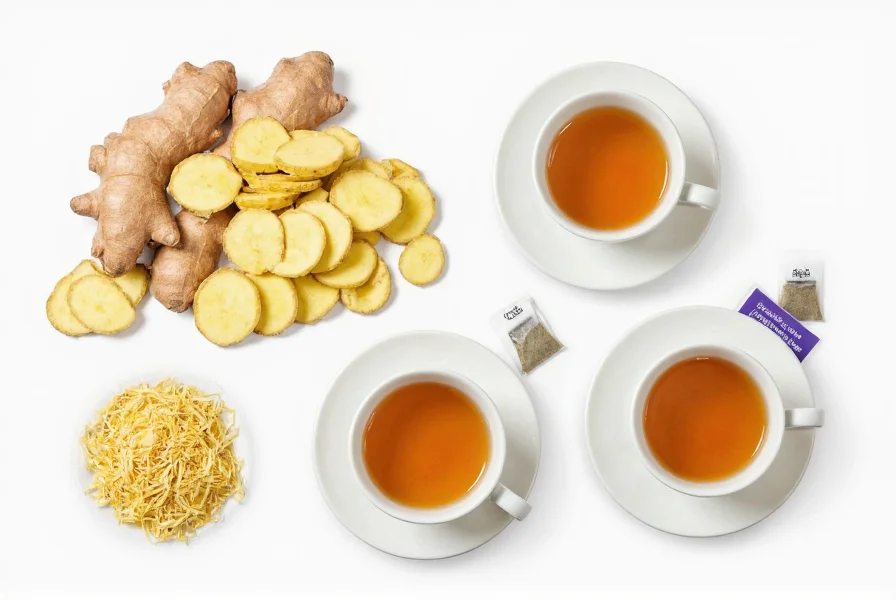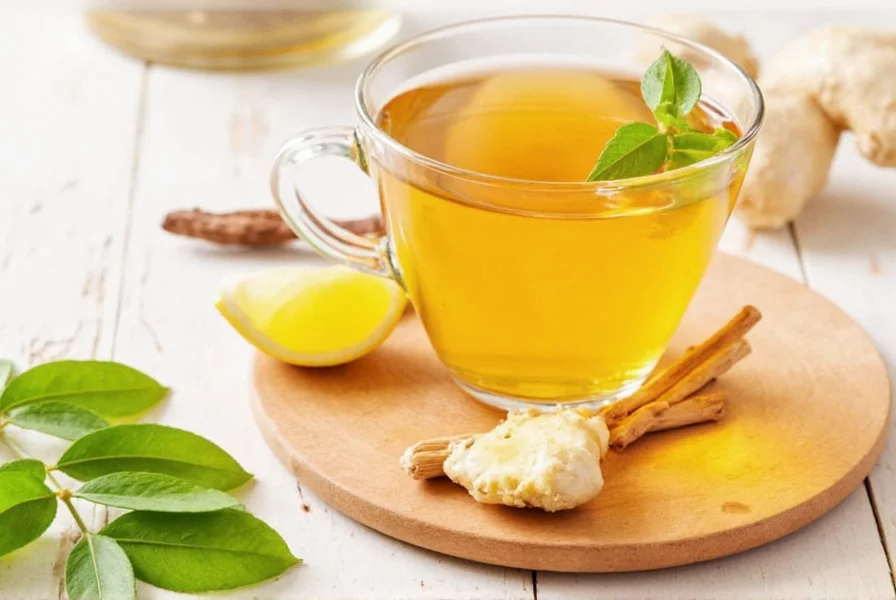For centuries, ginger tea has been cherished across cultures as a natural remedy for various ailments. This warm, spicy beverage, made from the root of the Zingiber officinale plant, contains powerful bioactive compounds that contribute to its therapeutic effects. Modern research continues to validate many traditional uses of ginger, revealing its potential to support multiple aspects of human health when consumed as part of a balanced lifestyle.
The Science Behind Ginger's Healing Properties
Ginger's primary bioactive compound, gingerol, is responsible for many of its health-promoting effects. This potent phenolic compound demonstrates significant antioxidant and anti-inflammatory activity in clinical studies. When prepared as tea, these compounds become readily bioavailable, allowing the body to absorb and utilize them effectively. Unlike supplements, ginger tea provides these compounds in their natural matrix, potentially enhancing their efficacy and reducing the risk of adverse effects.

Key Health Benefits of Ginger Tea
Digestive Health Improvement
Ginger tea benefits for digestion are among the most well-documented. Research published in the World Journal of Gastroenterology demonstrates that ginger accelerates gastric emptying, reducing symptoms of indigestion and bloating. The tea stimulates saliva, bile, and gastric enzyme production, facilitating more efficient food breakdown. For those experiencing irritable bowel syndrome (IBS), ginger tea may help regulate intestinal motility and reduce abdominal discomfort without the side effects of pharmaceutical interventions.
Nausea and Motion Sickness Relief
One of the most researched ginger tea benefits for nausea relief involves its effectiveness against various forms of nausea. A comprehensive review in Integrative Medicine Insights concluded that ginger significantly reduces nausea associated with pregnancy, chemotherapy, and postoperative recovery. Unlike conventional anti-nausea medications, ginger tea typically produces fewer side effects while providing comparable relief. The mechanism appears to involve ginger's ability to modulate serotonin receptors in the digestive tract and central nervous system.
Anti-Inflammatory Effects
Chronic inflammation underlies many modern health conditions, from arthritis to heart disease. Ginger tea's anti-inflammatory properties stem from gingerol's ability to inhibit inflammatory pathways at the molecular level. A study in Arthritis found that participants with osteoarthritis who consumed ginger extract (equivalent to strong ginger tea) experienced significant reductions in pain and stiffness compared to placebo. Regular ginger tea consumption may help manage inflammatory conditions while avoiding the gastrointestinal complications associated with long-term NSAID use.
| Benefit | Scientific Support Level | Recommended Daily Amount | Time to Notice Effects |
|---|---|---|---|
| Digestive Support | High (Multiple RCTs) | 1-2 cups after meals | Within 30 minutes |
| Nausea Relief | High (Systematic Reviews) | 1 cup as needed | 20-30 minutes |
| Inflammation Reduction | Moderate-High | 2-3 cups daily | 2-4 weeks |
| Immune Support | Moderate | 1-2 cups daily | Seasonal |
Immune System Support
During cold and flu season, ginger tea serves as a valuable addition to immune support protocols. Its antimicrobial properties help combat pathogens, while its warming effect promotes circulation and lymphatic drainage. The tea's high concentration of antioxidants, including gingerols and shogaols, helps neutralize free radicals that can weaken immune function. Unlike many commercial immune supplements, ginger tea provides these benefits without overstimulating the immune system, making it suitable for regular consumption.
Natural Pain Relief
Ginger tea benefits for pain management extend beyond inflammation-related discomfort. Research in the Journal of Pain indicates that regular ginger consumption can reduce muscle pain following exercise by up to 25%. Women experiencing menstrual discomfort may find ginger tea as effective as some over-the-counter pain medications, with studies showing significant reductions in both pain intensity and duration. The analgesic effects appear after consistent consumption over several days, making it valuable for chronic pain management.

Optimizing Ginger Tea Preparation for Maximum Benefits
To fully harness the health benefits of ginger tea, preparation method matters significantly. Fresh ginger root contains higher concentrations of active compounds than powdered forms. For optimal extraction:
- Use 1-2 inches of fresh ginger root per cup of water
- Thinly slice or grate the ginger to increase surface area
- Simmer for 10-15 minutes (longer for stronger tea)
- Add lemon juice to enhance antioxidant absorption
- Avoid boiling vigorously, which can degrade beneficial compounds
Adding black pepper can increase bioavailability of ginger's compounds through piperine's effects, while honey provides additional antimicrobial properties without negating ginger's benefits.
Considerations and Potential Side Effects
While ginger tea offers numerous health benefits, certain considerations ensure safe consumption. Some individuals may experience mild heartburn or mouth irritation, particularly with strong preparations. Those taking blood-thinning medications should consult their healthcare provider before consuming large amounts, as ginger may enhance anticoagulant effects. Pregnant women can generally consume ginger tea safely for nausea relief (up to 1g daily), but should discuss with their obstetrician. People with gallstone disease should exercise caution, as ginger may increase bile production.
Integrating Ginger Tea Into Your Wellness Routine
For those seeking natural approaches to health maintenance, ginger tea represents a versatile, accessible option. Unlike many supplements, it provides benefits through multiple mechanisms while offering a pleasant sensory experience. The key to experiencing ginger tea's full range of benefits lies in consistent, appropriate consumption as part of an overall healthy lifestyle. Whether enjoyed as a morning ritual, post-meal digestive aid, or evening relaxation beverage, properly prepared ginger tea can contribute meaningfully to your health regimen without the risks associated with pharmaceutical interventions.











 浙公网安备
33010002000092号
浙公网安备
33010002000092号 浙B2-20120091-4
浙B2-20120091-4